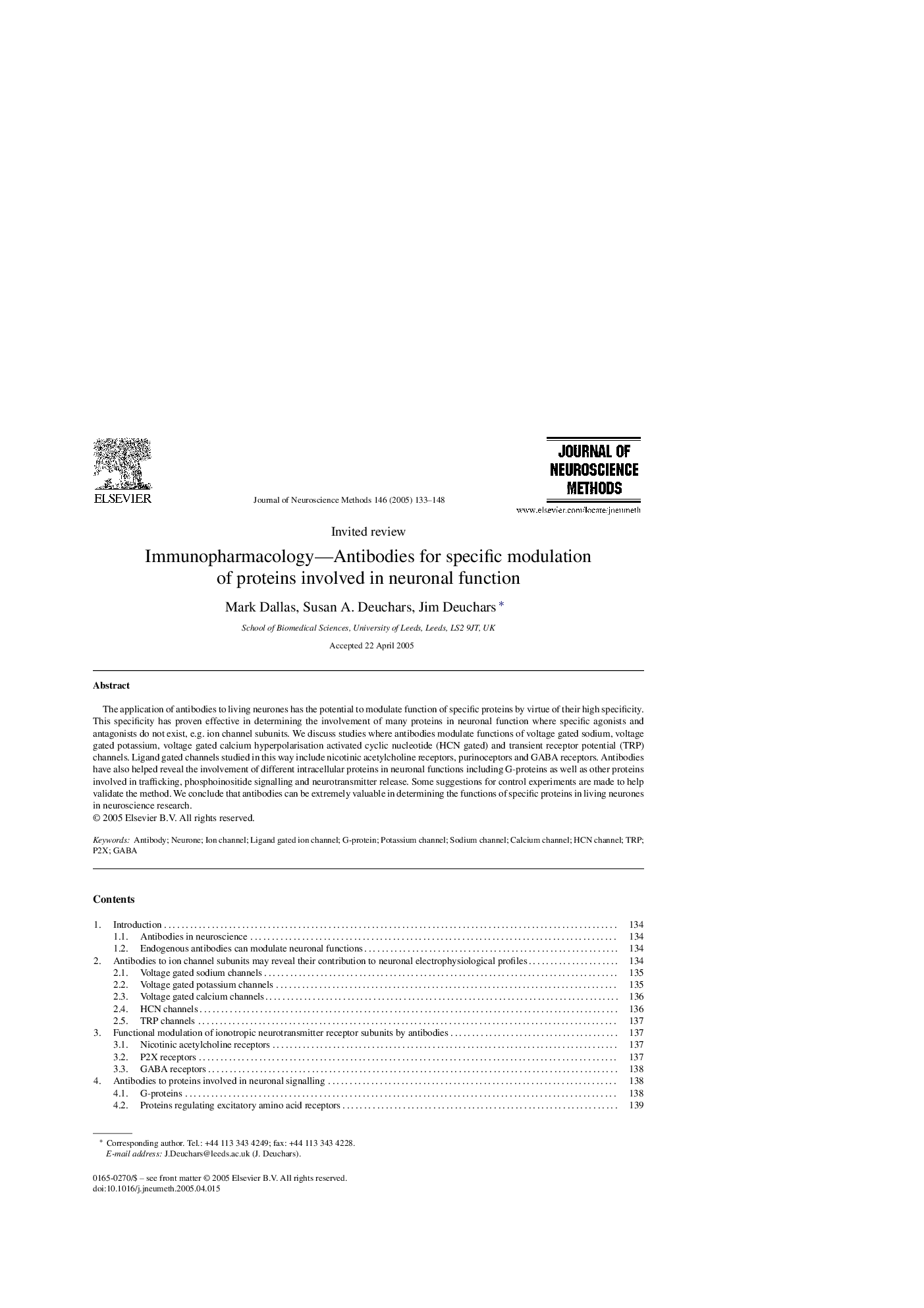| Article ID | Journal | Published Year | Pages | File Type |
|---|---|---|---|---|
| 9424104 | Journal of Neuroscience Methods | 2005 | 16 Pages |
Abstract
The application of antibodies to living neurones has the potential to modulate function of specific proteins by virtue of their high specificity. This specificity has proven effective in determining the involvement of many proteins in neuronal function where specific agonists and antagonists do not exist, e.g. ion channel subunits. We discuss studies where antibodies modulate functions of voltage gated sodium, voltage gated potassium, voltage gated calcium hyperpolarisation activated cyclic nucleotide (HCN gated) and transient receptor potential (TRP) channels. Ligand gated channels studied in this way include nicotinic acetylcholine receptors, purinoceptors and GABA receptors. Antibodies have also helped reveal the involvement of different intracellular proteins in neuronal functions including G-proteins as well as other proteins involved in trafficking, phosphoinositide signalling and neurotransmitter release. Some suggestions for control experiments are made to help validate the method. We conclude that antibodies can be extremely valuable in determining the functions of specific proteins in living neurones in neuroscience research.
Keywords
Related Topics
Life Sciences
Neuroscience
Neuroscience (General)
Authors
Mark Dallas, Susan A. Deuchars, Jim Deuchars,
